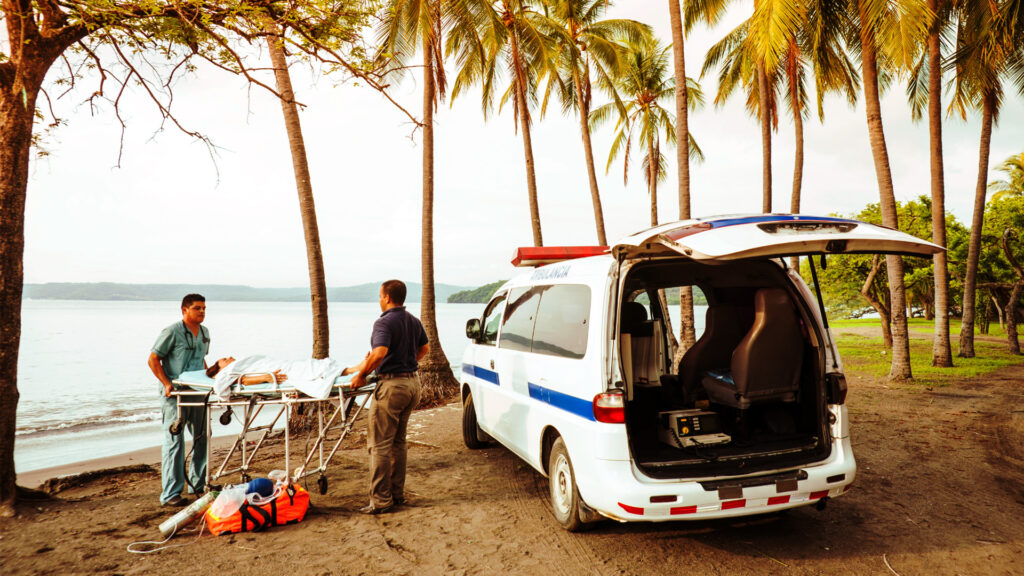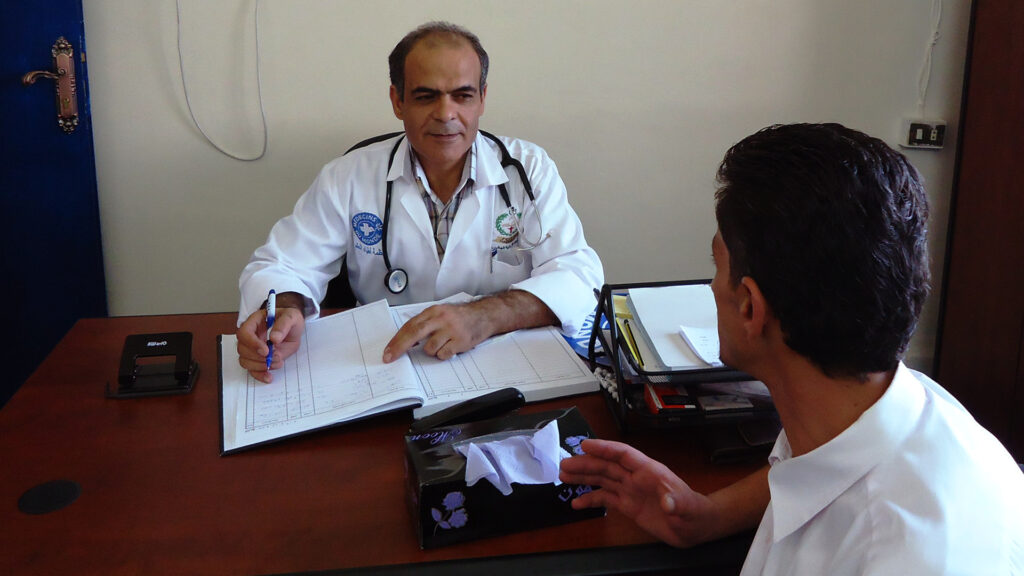In the last few years emergency medical services and hospital services are feeling the crunch of COVID. During this time Medical Professionals have been retiring or leaving the field secondary to the pandemic, and many clients are requesting security personnel with advanced medical capabilities.
Many parts of the country are experiencing delays in EMS response times and increased wait times in emergency rooms due to the shortage of personnel. Therefore, it is important that we as security personnel bridge that gap by providing adequate medical care until emergency medical services personnel arrive and can augment our care.
Integrating medical care and the security plan into the overall Operational Plan can be tricky. Most people are very particular about keeping their medical history private. Most high-end clients, only entrust their physician with this information. And even as a physician, most patients will not be completely honest about everything, sometimes leaving out details such as smoking, drinking history or substance use, that they may feel could be looked upon negatively. So, performing a medical assessment is a sensitive issue in the EP industry.
Medical providers fall under the US federal law, HIPPA Health Insurance Portability and Accountability Act of 1996, a federal law requiring the protection of sensitive patient health information from being disclosed without the patient’s consent or knowledge. As Security Medical Providers we must ensure our client’s medical information will be treated with the utmost care and confidentiality. Also, most security personnel will sign Non-Disclosure Agreements, which further protects the client’s information.
How do you prepare your medical plan to fit with your operations plan? There are 3 components to your medical plan, as I see it.
There is the:
– Client Medical Assessment – an assessment of patient’s overall health;
– Medical Threat Assessment – clients most likely medical condition or injury that could occur at home or during travel;
– Medical Advance – an assessment of medical needs/assets available during travel, which we will discuss later.

Client Medical Assessment
The most qualified Medical Personnel should perform the assessment. This should be someone with at least a Paramedic certification, or another provider with more training such as a Physician Assistant, Nurse Practioner, or Physician.
It’s best to have the team Medical Director perform the assessment. This should be standardized and can be done in conjunction with the client’s primary physician. There should be at least one advanced provider assigned on each detail who can perform the more advanced medical assessments, procedures, and treatments.
Along with the medical director, the paramedics on the team can help educate others on the team to assess and treat medical emergencies that could occur based on the Client Medical Assessments. Here are the categories we must address in the Medical Assessment.
These are broad examples only and not an exhaustive list.
Medical History
Does the patient have:
- Diabetes
- Hypertension
- Heart Conditions (Congestive Heart Failure, Myocardial Infarction, Pacemaker, Cardiac Stents)
- Lung Conditions (Asthma, COPD)
- Psychiatric History (Depression)
- Skin disorders – Eczema, Hives.
Meds
- Any over-the-counter medication they take including all supplements, and herbs that can interact with their prescribed medications;
- List of Medications and Dosage.
Allergies: – History of Anaphylaxis?
- Medications
- Foods
- Chemical Exposures
- Insect stings (Bee, Wasp, etc.)
Surgeries:
- Appendectomy
- Cholecystectomy
- Coronary Artery Bypass Graft (CABG)
- Extremity surgery, etc
Family History:
- Heart Attack
- Stroke
Social History:
- Smoker
- Alcohol
- Non-Prescription Drugs.
Physical impairments:
- Focal weakness from previous stroke or injury
- Vision Impairment
This is helpful in telling providers that these problems are old and not new.
Baseline Vitals
Is your client’s heart rate in the 40’s because they are an endurance athlete, or does their systolic blood pressure run in the high 90’s? These vitals may be normal for your client, but to a new provider who is not aware of your client’s health, they fall outside of the normal range and can be worrisome.
(DNR) Do Not Resuscitate Status/Advanced Directive
Do you travel with paperwork so that medical providers are aware of clients’ medical treatment preferences?
Power of Attorney
Who is making decisions if the client is incapacitated?
Health Screening Prior to Travel
Is the client suffering with an illness, pain, or not feeling 100% prior to a prolonged trip away from their daily medical care or medical providers?
Should you recommend they get checked out by their primary medical team before traveling abroad, to get updated medications or equipment they may need if their condition deteriorates?
Medical Threat Assessment
The second phase of the medical plan is conducting a Medical Threat Assessment.
What is the client’s most likely medical condition or injury that will occur based on the location of movement? Is it just another day moving around the city? Are you flying to another state or country where you will be without advanced medical support? Are you preparing for a long trip to another country, that may be geopolitically unstable?
That all being said, are you prepared for just the most common emergencies?
Most common emergencies happen most often. Based on the Client Medical Assessment, are you prepared to treat the most common ailments that may occur? Knowing your client’s medical background, have you reviewed the signs/symptoms, physical exam findings, and treatment of common emergencies that may occur?
For example, if the client is diabetic and you find the client slurring words and sounding confused, are you aware of the sign and symptoms of hypoglycemia vs stroke? Do you have a glucometer to check a blood sugar?
And when you get the blood sugar reading of 35 – which is low, do you have oral glucose or IV glucose available in case the patient is lethargic and unable to take oral glucose? If after giving glucose and the client is now functioning normally and a recheck of blood sugar is within normal limits, is it likely this was a stroke? The answer is no, it’s most likely just hypoglycemia and there is NO stroke component.
You should consult your medical director and try and figure out why the client’s blood sugar went low. Was it as simple as they skipped a few meals, or did they take too much of their diabetes medications on accident?
Have you been trained on prolonged field care if such an emergency exists? Have you brought enough medications with you to cover the time of travel? What if you lose medications, where will you get replacement medications while out of the country? Can you have your medications delivered overnight express to a foreign country? If medications include controlled substances, is it legal to mail them to the country your visiting?
These are all questions that should be worked out and planned for when traveling locally or abroad.

Medical Advance
The final phase of medical planning is conducting the Medical Advance. When traveling to another city, state, or country, each scenario brings a different set of challenges.
1. Knowing your client, their family, and friends is essential in preparing for what type of medical care they need if a medical or traumatic emergency arises.
2. Know where the nearest hospitals are located:
- What capabilities do they have?
- Are they a Trauma Center, Stroke Center, Cardiac Cath Center, or Pediatric Center?
- What is the transport time to that facility if the need arises? 5 miles away doesn’t mean 5 minutes away; traffic, road closures, and time of day all should be considered.
- Does the region have an EMS service? What is their average scene time?
- Are they Volunteer Emergency Medical Services or a 24/7 staffed service? Do they provide Basic Life Support or Advanced Life Support?
3. Do you have advanced medical and trauma equipment with you if you can’t readily access an Emergency Room, i.e you are on a yacht in open waters or on a private jet over the ocean?
- Are you equipped to maintain an airway during transport to a hospital?
- Do you have an AED or cardiac monitor/defibrillator, and ACLS drugs if you are in a situation where CPR is necessary? Do you have a paramedic or other provider who can administer ACLS drugs such as IV epinephrine and Amiodarone? Do you have the capabilities of treating minor injuries?
- Do you have the capability to provide the simplest of medical care so ER visit is not needed? Are you able to splint an extremity injury until further treatment can be sought? Can you suture or staple a simple laceration? Are you able to treat common ailments?
4. Is there endemic disease where you are traveling?
Malaria, Dengue Fever, Chagas disease, as well as a host of others. A great reference is CDC’s Travelers’ Health website.
- Do you have antiparasitic, antifungals, and antibiotics with you to treat those illnesses?
- Do you carry medications for common illnesses, such as cough, diarrhea, allergic reactions, gastritis, and everyday aches and pains?
5. Do you have telemedicine capabilities?
- Can you contact your medical director 24/7 or do you have a telemedicine service you contract with?
Telemedicine has become very user-friendly, and can be used with minimal equipment, such as a web enabled tablet or mobile phone. Advanced monitors like the Philips Tempus IC2, which is an integrated monitor and telemedicine solution, is used in remote locations which collect data and transfer it to medical professionals who can offer telemedicine support.
6. Evacuation plan:
- If the client is in a remote area, and advanced medical capabilities are not available, how do you evacuate the client?
- If you’re on the open ocean, do you have an LZ on your yacht?
- Can you get the patient to shore rapidly via a yacht tender?
- If you need to evacuate clients back to their home country for more advanced medical treatment, do you have medical transport company relationship already lined up? Are they reliable? Will they allow family or security personnel to accompany them?
Emergency Medical Services – Final remarks
These are some of the basic things one must plan for when working with a client that expects more advanced medical capabilities from their security team. Different details or travels will require a wide range of planning and training.
As these travels occur in areas further away from advanced Medical Care Centers, we must be prepared for all emergencies that could arise. And perhaps be overly prepared for those emergencies that are most likely to occur based on the Client Medical Assessment, Medical Threat Assessment, and Medical Advance we have conducted prior to any operation.





